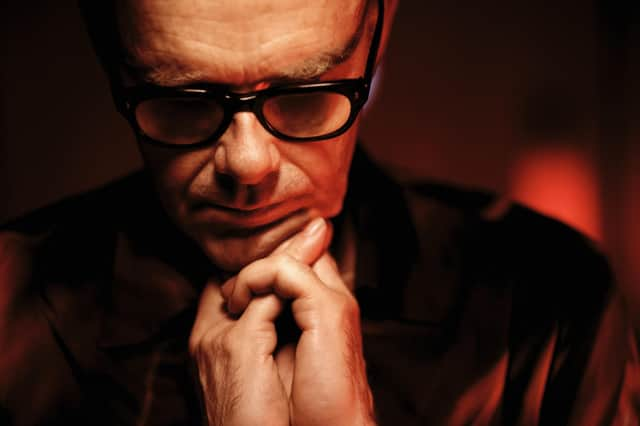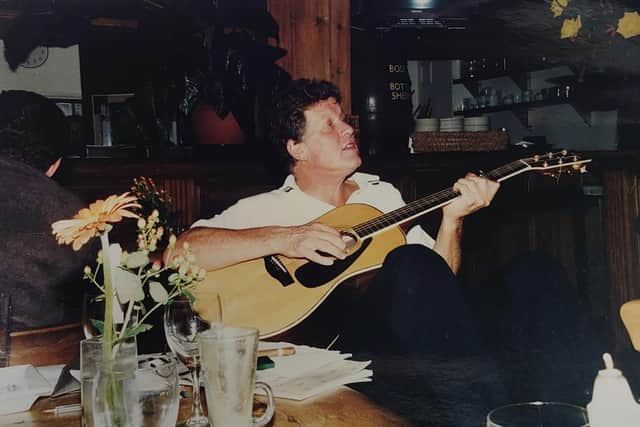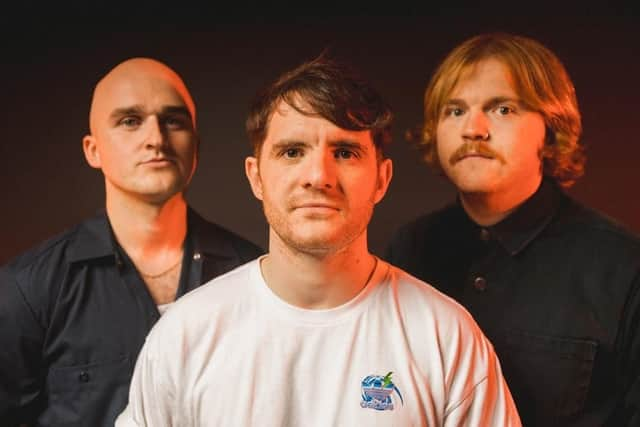Album reviews: Leftfield | Nick Garrie | Shredd


Leftfield: This Is What We Do (Virgin Music) ****
Nick Garrie: Summer Night (The Lost Portuguese Session) (Tapete Records) ****
Shredd: The Place Unknown (self-released) ****
Leftfield were such a huge part of the Nineties electronica scene, joining their peers Orbital, Chemical Brothers and Underworld in taking imaginative club music into the gig arena, yet they built their reputation as guaranteed crowd-pullers on just two albums, their classic debut Leftism and 1999’s Rhythm and Stealth, before splitting in 2002.
Advertisement
Hide AdAdvertisement
Hide AdReforming without founder member Paul Daley in 2010, remaining mainman Neil Barnes produced Alternative Light Source in 2015 and now comes a fourth offering with a statement-of-intent title. This Is What We Do is an upbeat, cathartic album created against a ticking clock – Barnes wanted the collection to have taken shape before he started treatment for cancer (he is now in remission).
However, there is no will-this-do about This Is What We Do, which comprises 11 quality club tracks from the slinky, uncluttered techno of the title track to the sparkling, cleansing synth stabs, electro rock licks and insistent almost hi-NRG beat of The Power of Listening.
Barnes offers almost nothing you couldn’t have heard back in their mid-Nineties prime but the album is none the worse for that. Strictly speaking, Fontaines DC frontman Grian Chatten would not have been around to add his unmistakeable strident semi-spoken tones to the quaking bass, klaxon calls and modular synths of Full Way Round on account of not being born and poet Lemn Sissay would not yet have written the stimulating poem which forms the basis of Making a Difference, but their contributions are very much in the judiciously curated guest vocal tradition which Leftfield have upheld since their breakthrough hit Open Up, featuring John Lydon in full guttural effect.


The rest of the album is full of rhythmic hooks, from the skittering breakbeats and bass oscillation of Pulse to the robotic mantra of Machines Like Me, from the swinging Heart and Soul with its looped funk bassline and samples of North African pipes to the urgent pumping electro of Accumulator, an utterly no-nonsense club track to drive those celebratory live shows.
The Nick Garrie story is a fascinating and frustrating litany of hopeful potential, thwarted opportunities and rediscovered gems stretching back to the Sixties, with more recent patronage from members of the Glasgow indie community such as BMX Bandits and Camera Obscura.
Summer Nights (The Lost Portuguese Sessions) is another recovered nugget in his staccato catalogue which has its roots in a working holiday in northern Portugal. He was invited to play the communal guitar in a rural bodega, used that same guitar at his next recording opportunity, around the turn of the millennium, and has now happily rescued the album he made from the shelf.
Garrie cleaves to the timeless folk troubadour tradition with a set of simple and seductive tunes such as the Cat Stevens-like Back In 1930. Even a seemingly throwaway track like Bungles Tours emerges as a McCartneyesque ditty with Parisian pavement café-style backing and there is warmth and wistfulness even in the haunted likes of When the Cold Winds Blow and I Dream of Africa, making Summer Nights ideal comforting company for winter nights.


Advertisement
Hide AdAdvertisement
Hide AdGlasgow power trio Shredd, previous recipients of the Best Newcomer Award at the Scottish Alternative Music Awards, have walked a longish road to their debut album, but A Place Unknown is an assured beast, from the punk boogie of Lights Out to the gargantuan title track. Given their partiality to changing lanes mid-song, Biffy Clyro comparisons are never far away but Shredd are more of a heads-down garage rock proposition. They barely touch the ground on the fleet Run Away, They’re Here, The Collector is a heavier stoner rock juggernaut while Feel It is a scrappy, soulful rock ballad which ends on some heroic classic rock riffola.
CLASSICAL
Renaud Capuçon & Martha Argerich: Beethoven, Schumann & Franck (Deutsche Grammophon) *****
The most remarkable aspect of this alert new release by pianist Marta Argerich and violinist Renaud Capuçon is the former’s age. Argerich was 80 when the recording was made earlier this year but sounds like a pianist half her age, which Capuçon, in his mid-40s, more or less is. Yet the partnership is nothing short of equal in terms of refreshing dynamism, crisp insight and flashy theatricality. They open with Schumann’s Sonata in A minor, Op 105, its effervescent finale a jubilant summation of the boisterous joie de vivre and tender lyrical interplay that precede it. Things get even better with Beethoven’s “Kreuzer” Sonata, its electrifying perfection and exquisite delivery captivating at every turn. Franck’s A major Sonata completes this extraordinary musical journey, the heightened yearning of the opening Allegretto a mere breather en route to the ripened thrills of the central movement and liquid affirmation of the finale. Ken Walton
JAZZ
Esbjörn Svensson: HOME.S (ACT Records) ****
Swedish pianist Esbjörn Svensson brought, with his e.s.t. trio, a bold new sensibility to European jazz, attracting stadium-sized audiences with their potent blend of jazz with rock and classical energies. Then, in 2008, Svensson died in a scuba diving accident. Now, 14 years on, comes this unique recording of him playing solo at home, unearthed by his widow, Eva. Its nine tracks each named after a letter of the Greek alphabet (reflecting Svensson’s interest in astronomy), HOME.S catches the pianist away from the heady surge of e.s.t. Keith Jarrett inevitably comes to mind, not least when Svensson vocalises quietly, but these inventive deliberations are very much his own, ranging from sublime stillness to eruptive vivaciousness. Gamma, for instance, takes on an elegant, bluesy languor while the faintly township-sounding Eta sports a glittering coda. It’s a delight, but also, inevitably, a poignant suggestion of what might have been. Jim Gilchrist